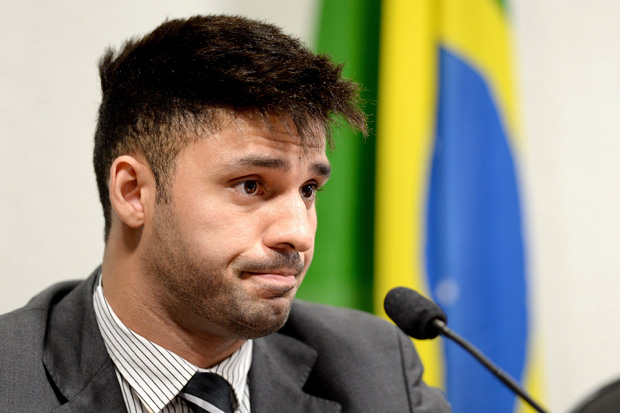This week brings to a close an absurdly overblown cause célèbre. The Court of Appeal ruled that David Miranda’s detention at Heathrow three years ago under the Terrorism Act was lawful. He had been part of a professional operation leaking classified information to the Guardian, which compromised British and American national security.
Yet the judgement was hailed as a victory for Miranda because the court also noted that the Terrorism Act didn’t include sufficient protection for journalists carrying sensitive information. It asked Parliament to look again, in order that it be compatible with the European Convention on Human Rights — even though, in this case, there was no breach.
This magazine is a staunch defender of press freedom. We have opposed a statutory press regulation body, as recommended by Lord Leveson after his inquiry into phone hacking and the ethics of the press. But as Oliver Wendell Holmes noted a century ago, the right to free speech does not excuse someone who falsely shouts ‘fire!’ in a crowded theatre. Neither does the right to a free press extend to the indiscriminate release of secret documents which put agents’ lives in danger, or alert terrorists to the gaps in our capabilities. Only an extremist libertarian, who believed all activities of the state to be illegitimate, could think otherwise.
The Miranda case was never about press freedom. It was about the right of the security services to protect secrets vital to their activities and defend national security. Miranda was arrested because he was the partner of Glenn Greenwald, a Guardian journalist suspected of carrying classified documents from Edward Snowden, the renegade CIA computer engineer who had been granted asylum in Russia. Amnesty International said that the ‘only possible intent’ behind the detention was ‘to harass him’ for no other reason than his personal relationship to Greenwald.
As things turned out, Miranda (who had been changing planes en route from Moscow) was carrying a laptop onto which 58,000 highly classified documents had been loaded. At the time, outrage over Miranda’s arrest was justified on the grounds that if the police stopped him, they could stop anyone. But the only people who need to worry are those who intend to use their partner as a mule for industrial-scale sabotage.
It might not have been the intention of Glenn Greenwald, Edward Snowden, the Guardian or anyone else to release these documents indiscriminately. But the fact that the information was at large was itself a good enough reason for David Miranda to have been detained and searched. This ought not to be controversial: the very fact that the files had been leaked was a risk to Britain’s national security.
The irony is that some of those who have supported Miranda, Greenwald and Snowden proved to be no friends of a free press when Lord Leveson proposed a statutory body for regulating the press. They did not protest when journalists from the Sun started to be hauled before the courts on charges of corrupting public officials. Liberty, the civil rights group, also backed Miranda, yet has been a somewhat lukewarm supporter of press freedom. The Guardian, which has tried to elevate the Miranda case into a battle for the soul of the nation, shamefully endorsed statutory regulation of the press.
The Snowden revelations did help to sell newspapers but their disclosure inflicted lasting harm on the capabilities of Britain’s security services. As a direct result of the revelations, there are large parts of the world in which our spies have little to no presence: the leaks meant that they had to pull out agents and wind up intelligence networks. The revelations about US espionage alerted jihadis who had been using various US-based internet providers: they changed their behaviour and became harder to track. It also poisoned relationships between security services and email companies.
The Court of Appeal judgement said that ‘if journalists and their sources can have no expectation of confidentiality, they may decide against providing information on sensitive matters of public interest’. Quite so. But in this case, journalistic integrity was not at stake.
The judgement settled what ought to have been the obvious from the outset: that no one has the right to steal and publish vast amounts of secret intelligence that damages the national security of Britain or her allies.






Comments